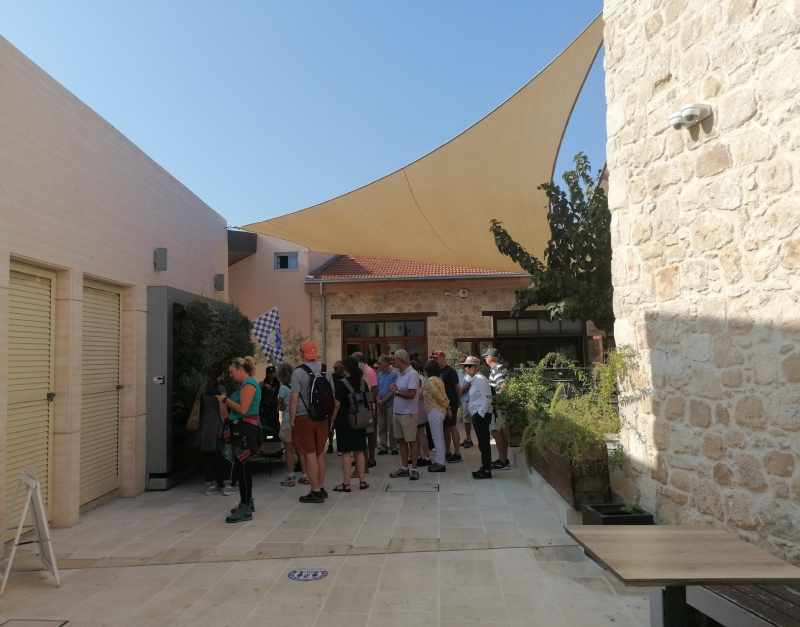Paphos has just been selected as one of two 2023 winners of the European Capitals of Smart Tourism competition of the European Union, along with Seville, out of 29 cities from across 13 countries. Our recording studio was recently asked to record detailed narratives for about fifty different local sites, in five languages, which may be connected to that initiative. On a short trip to Rome last week, I experienced various different forms of tour guide, perhaps a taste of what’s to come here in our city.
Traditionally, tour guides don a brightly coloured hat or parasol so as to be easily spotted by their followers, and speak in a loud voice. For a smaller group this is still my favourite method, but there are disadvantages: one needs to be close to and facing the guide to hear, so they need to keep stopping and starting; only one language can be used or it becomes tedious; it only works with small groups; if the guide has any kind of speech impediment or strong accent it doesn’t work; and you sometimes get freeloaders tagging along.

In the sprawling, monument-ridden city of Rome, where hundreds of tours are running at any given point, modern and techno facilities abound. Everywhere you look there are groups of people all wearing matching coloured headphones with a small electronic box hung round the neck. These groups each have a guide, who leads them, chatting live into a head mic, their words transmitted via radio to their own collection of tourists. An excellent system, but with its flaws, as if you’re not in clear sight of the guide, the signal cuts out, and individual conversation with the guide means his half of the conversation is broadcast to the group, so one is less inclined to ask questions.
Buses abound, again full of passengers with coloured headsets, each tuned to a radio channel according to their language, listening to a recorded narration which takes its signals from various checkpoints along route. One can hop on and off the bus at any stop for a closer look at the site just described on the bus. For a smaller cost, one can get on the bus and remain on board for the entire tour, which my friend and I found useful on a day we were too exhausted to walk anymore, but the narration wasn’t in much depth and left us frustrated for more detail. A similar service runs in Paphos, once part of the international City Sightseeing franchise but now independent as The Original Paphos Sightseeing Tour. Despite being the voice on one part of the tour, I’m ashamed to admit I’ve never experienced it. I vow to do that soon.
A much smaller group tour in Rome, a ‘food tour’ tasting delights of hidden backstreet eateries and tiny locations that a bus couldn’t reach, showed less awesome sights but was an equally fascinating and informative experience. A live tour guide also means you can get up to date facts. I tested the Paphos Walking Tour on my return, to see how we compare.

The tour of the old town runs every Thursday, leaving the market car park top lift at 9.30am (booking essential via 26 932 841 / loucas@visitpafos.org.cy) . It’s completely free, and the municipality should be proud. Our guide was knowledgeable and clearly passionate about the town’s history and future, and keen to share her wealth of facts and experience. She was also up to date enough to tell us about the city’s winning the Smart award the day before, and that the likely reason for the never-ending roadworks in the town centre was probably a discovery of tombs below the dug up roads. I wasn’t aware of how many archaeological sites are still buried under the town in all areas, yet to be excavated. I won’t go into details of this tour as I thoroughly recommend all readers should try it. It’s about two hours, is a slow walk around the old – should that now read ‘new’? – town, with some fascinating facts and sights and I guarantee you’ll learn something new. I can’t wait to include some in my narration on the yachts next summer!
Jezebel hosts a quiz every Wednesday 7.30pm at Kamares Club, and Tuesdays 6th and 20th December.









